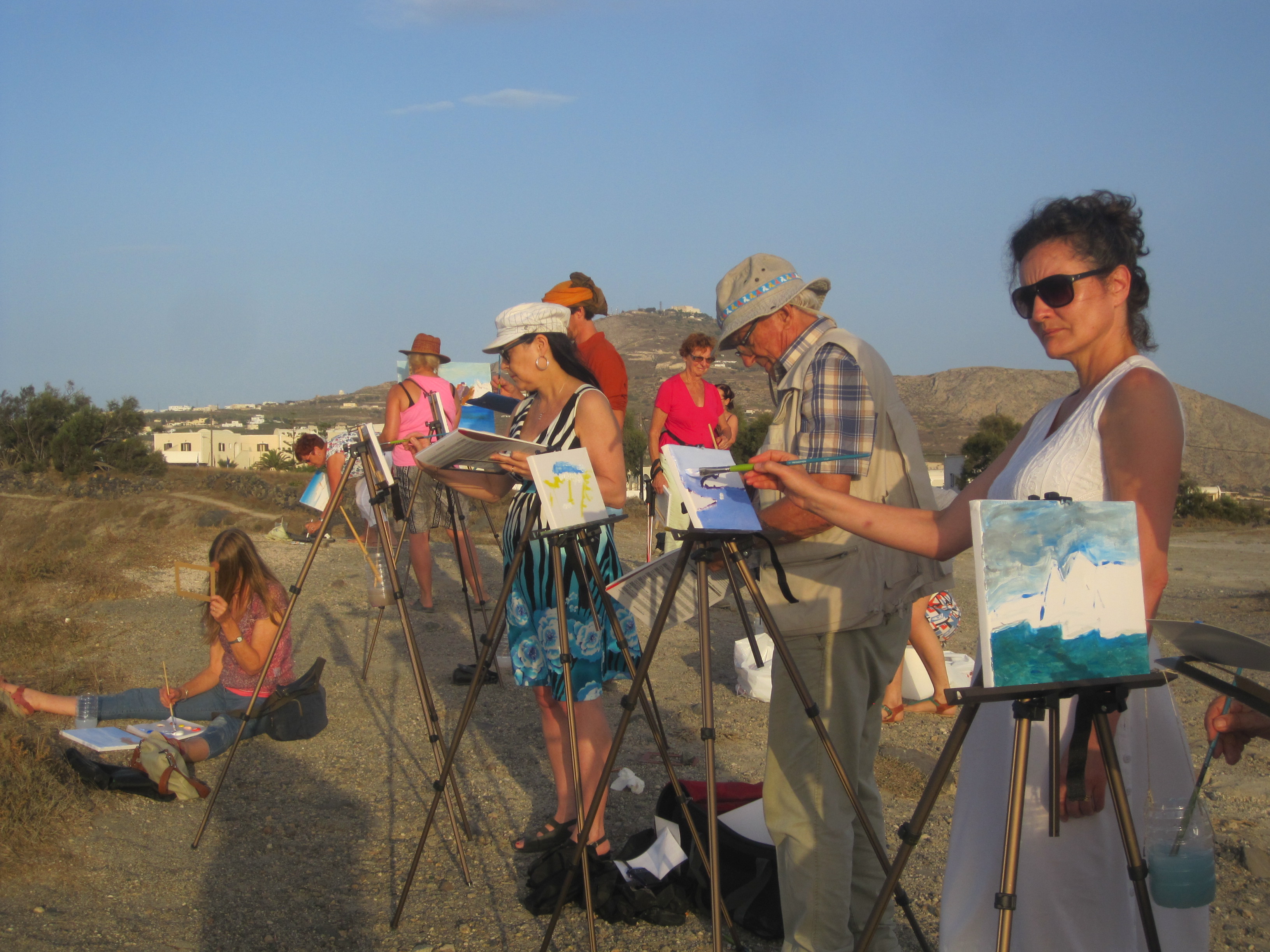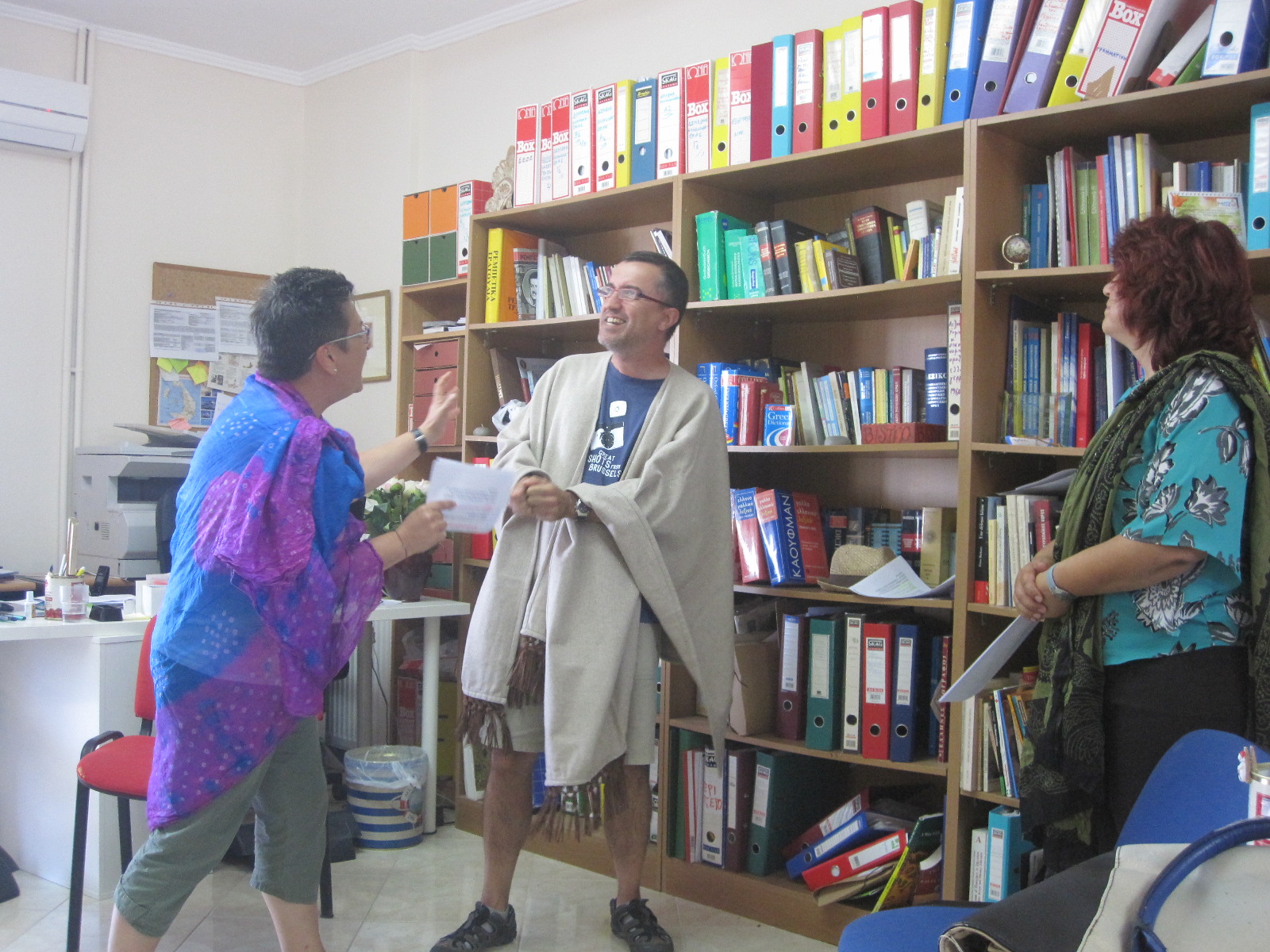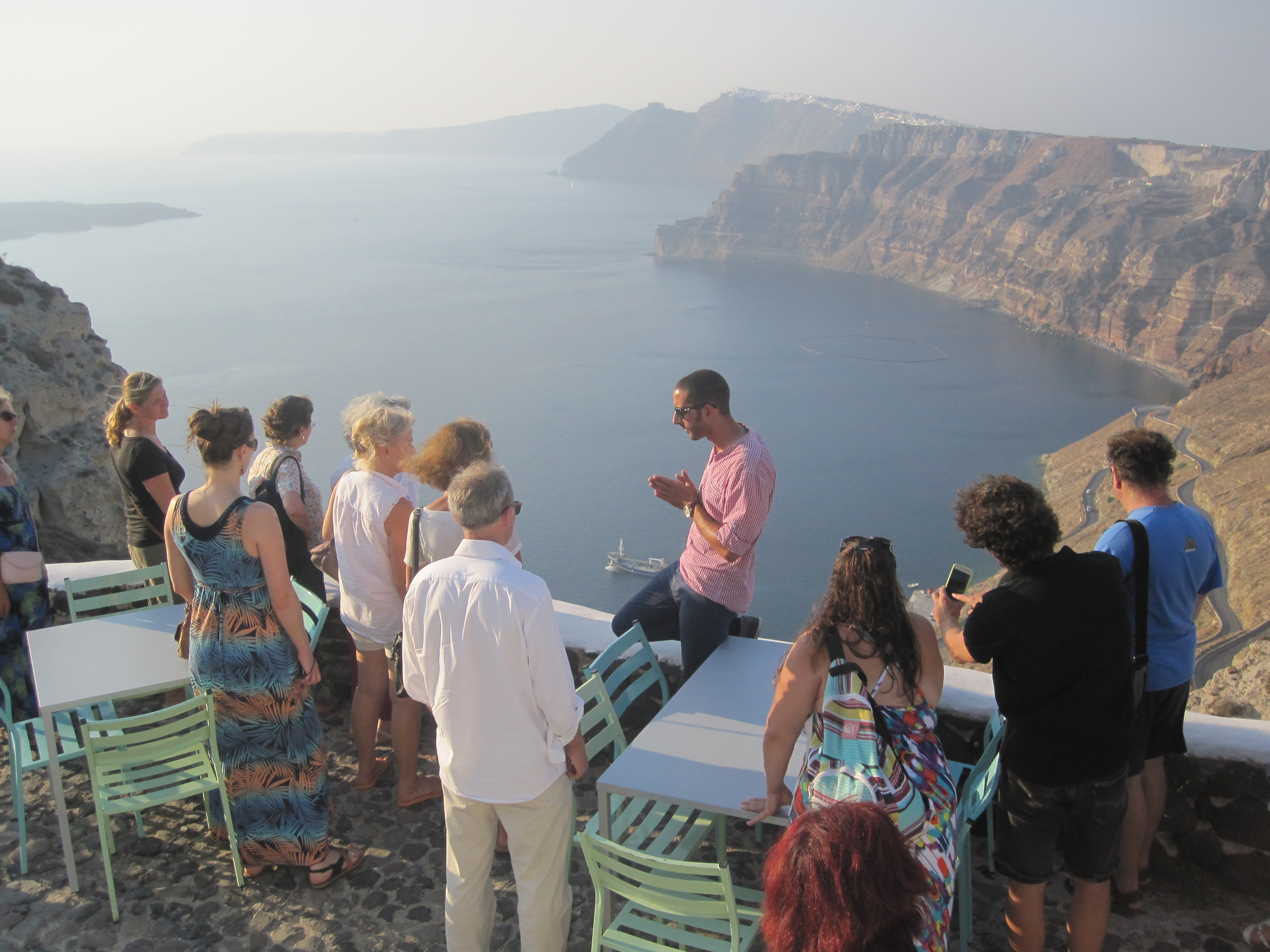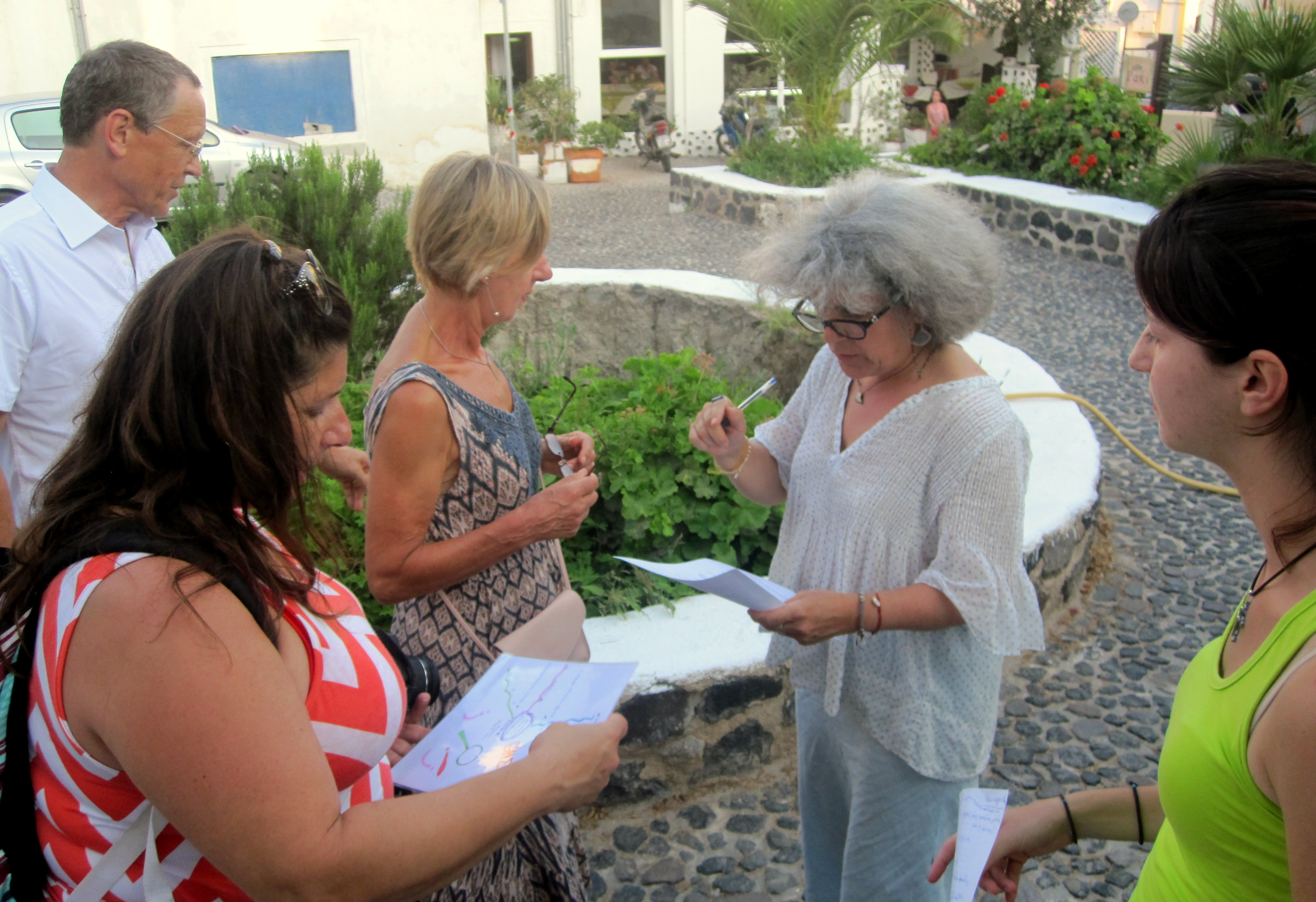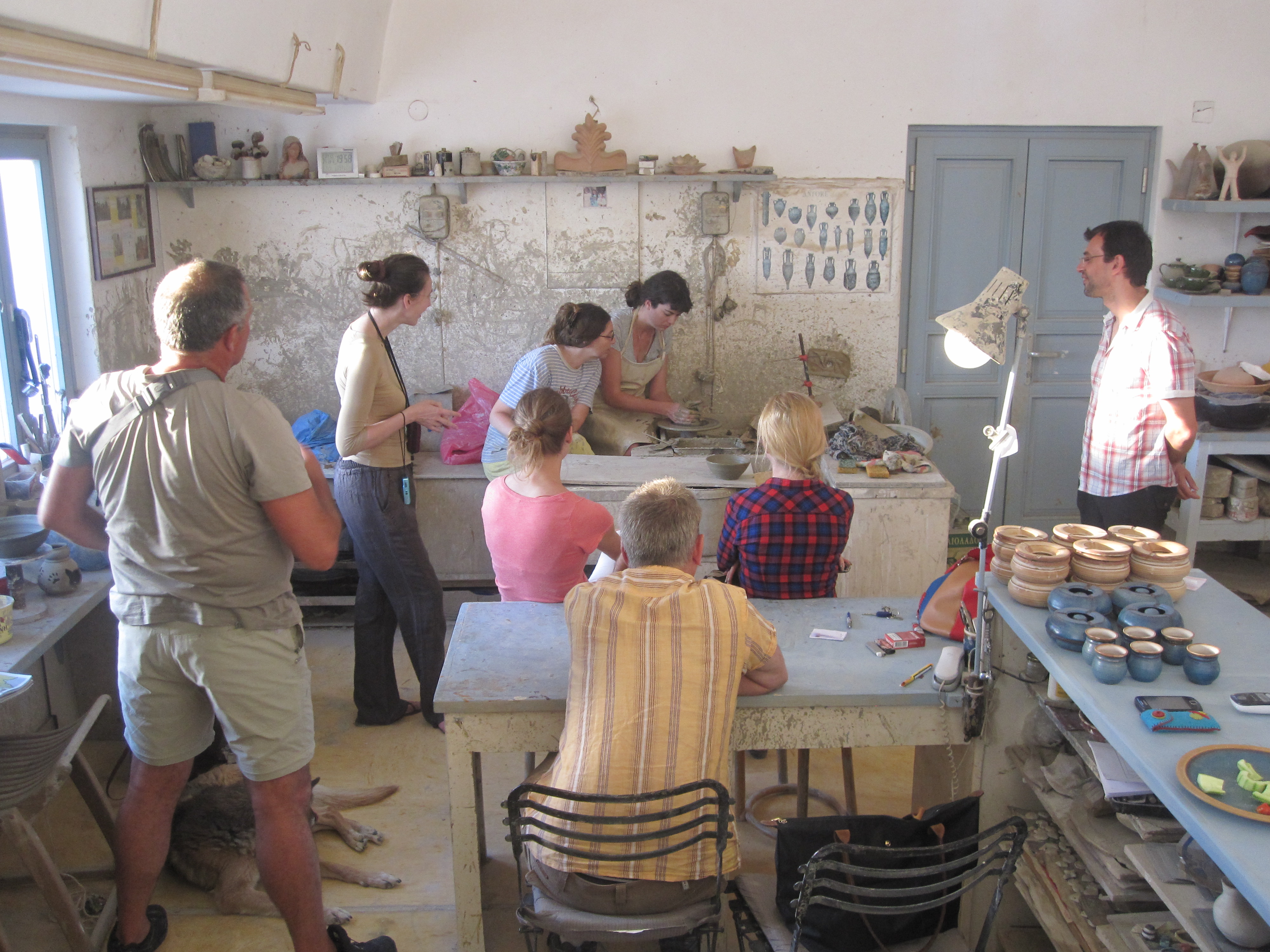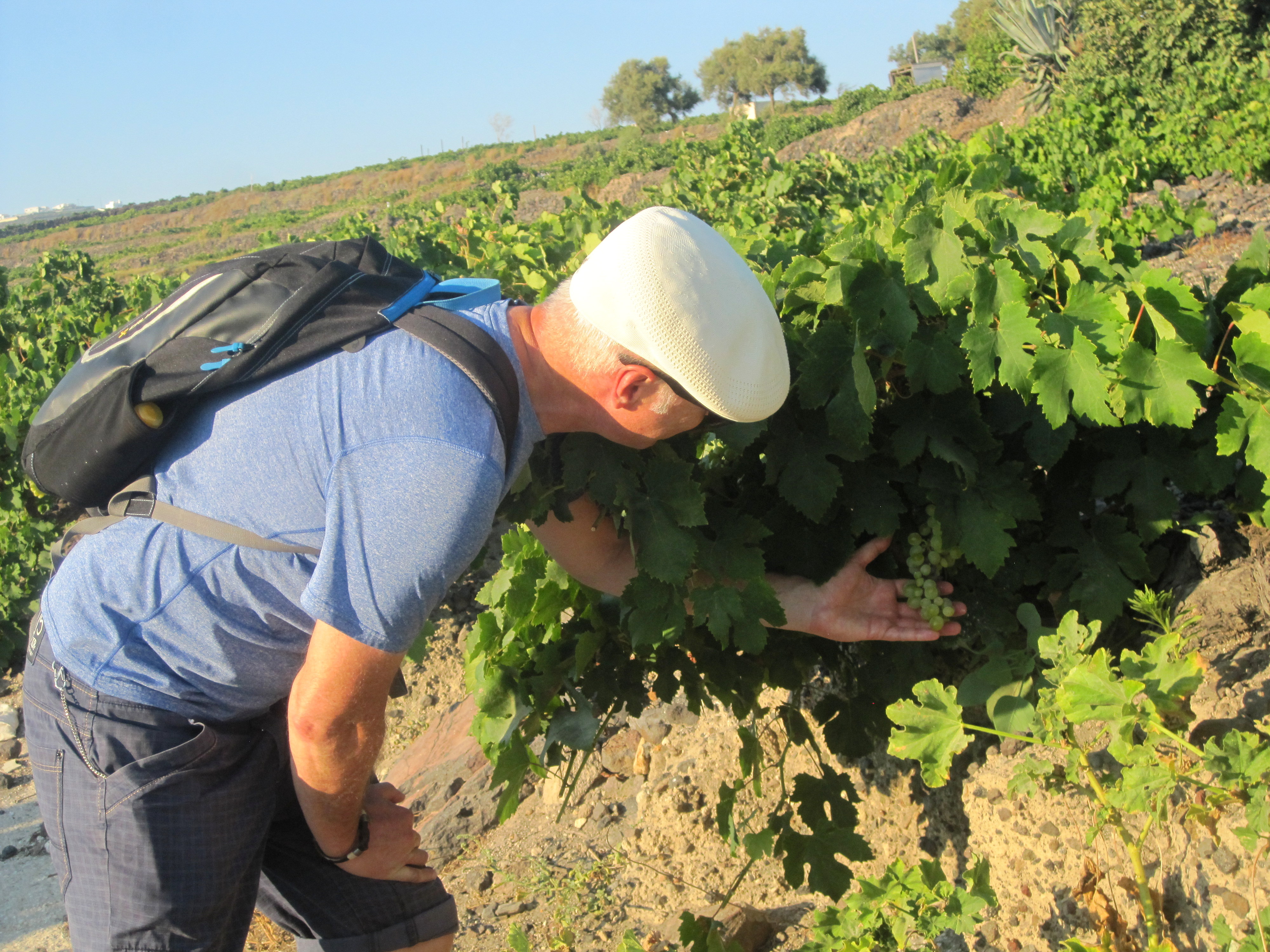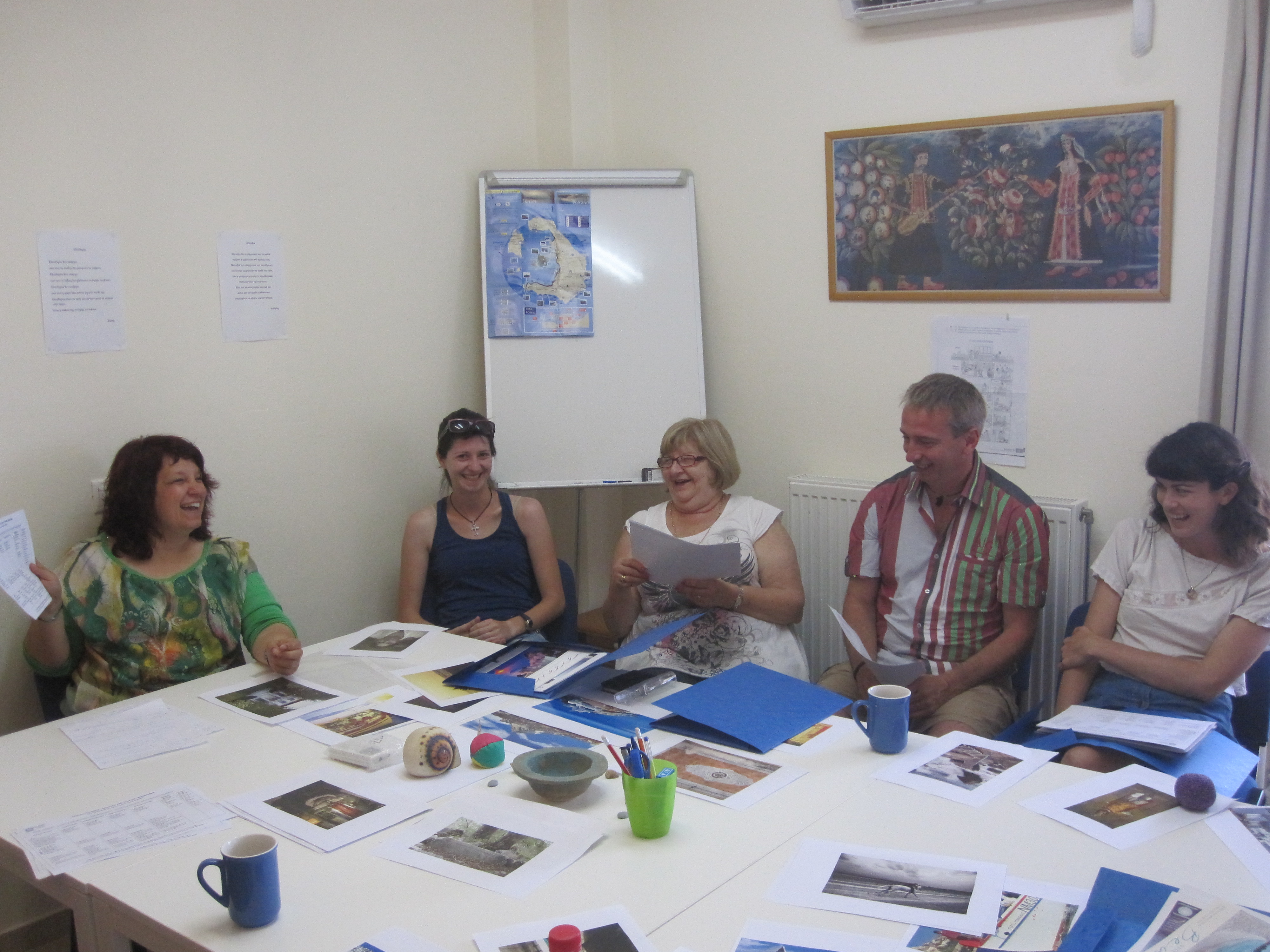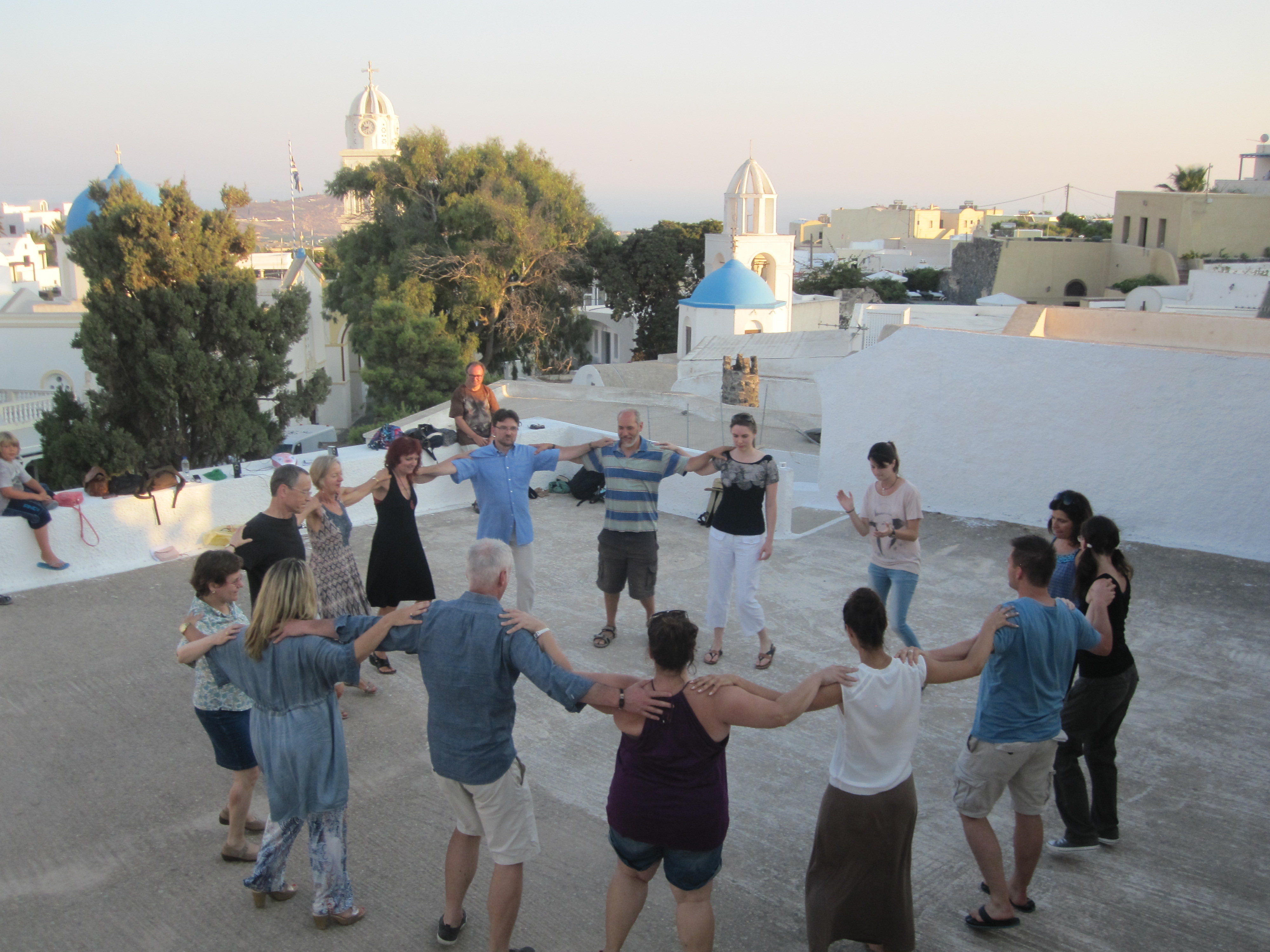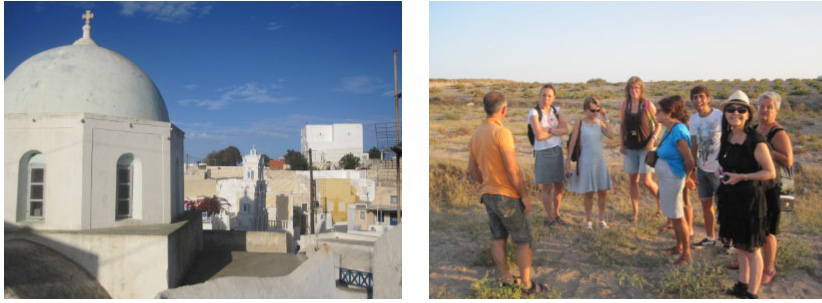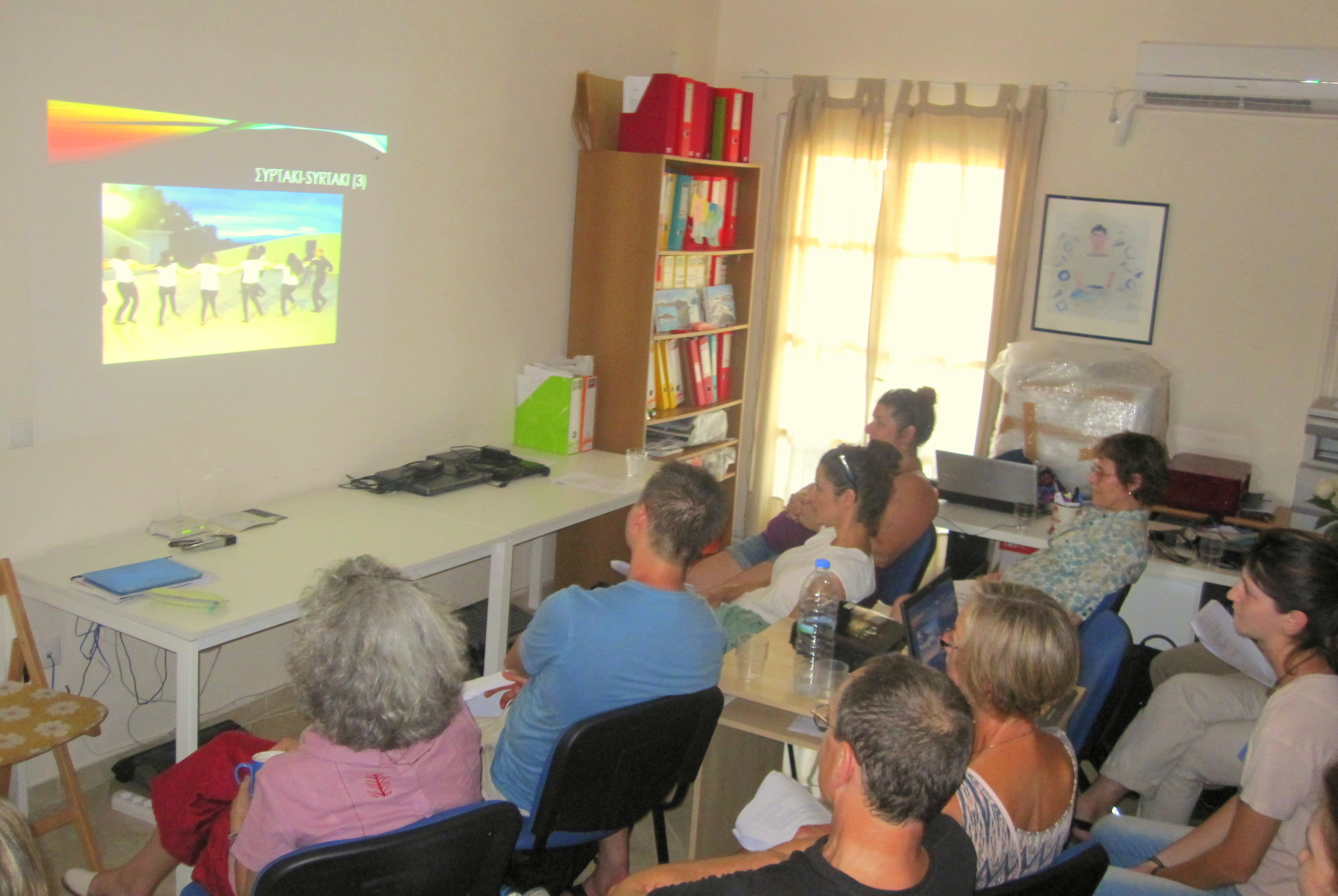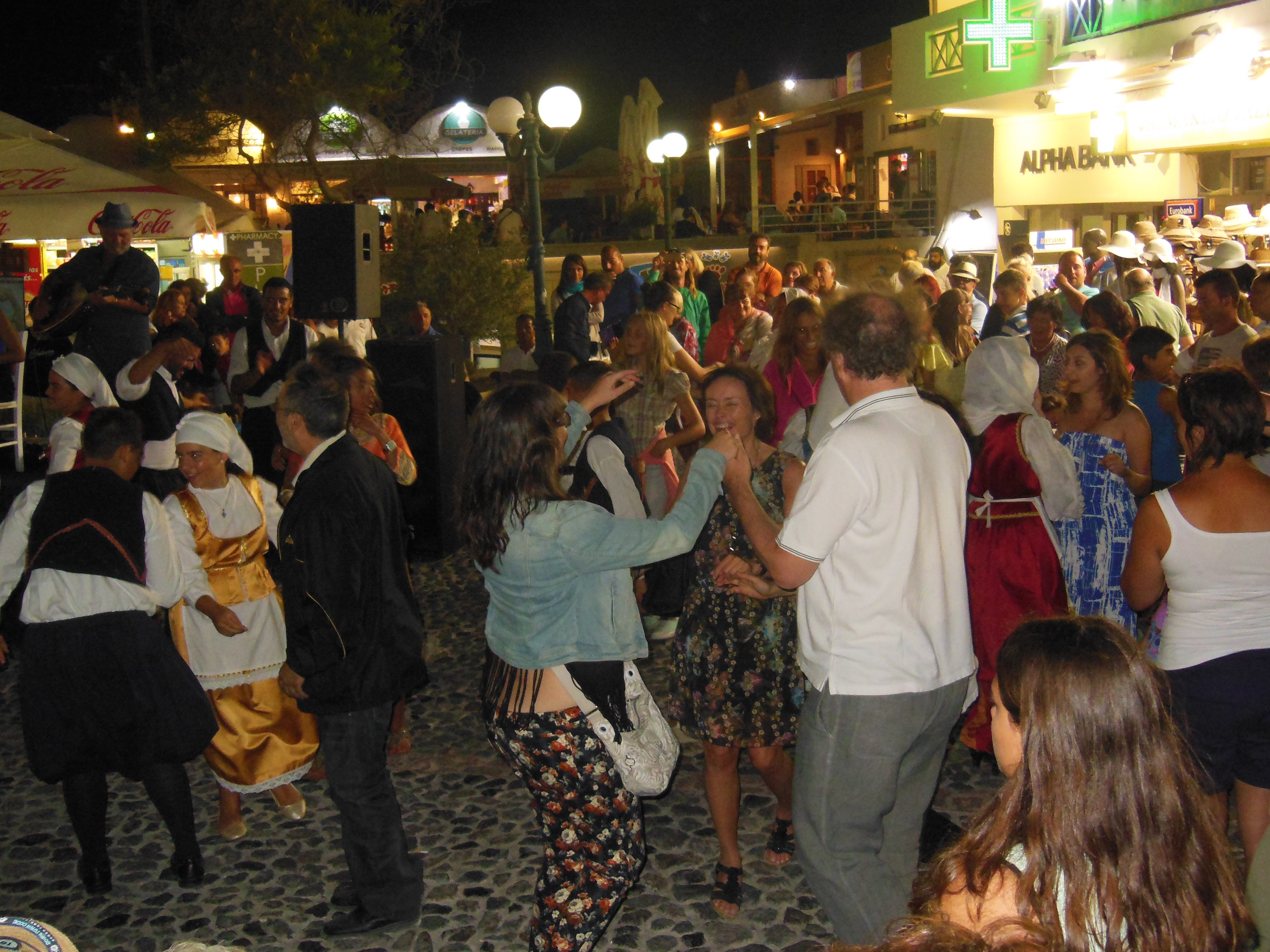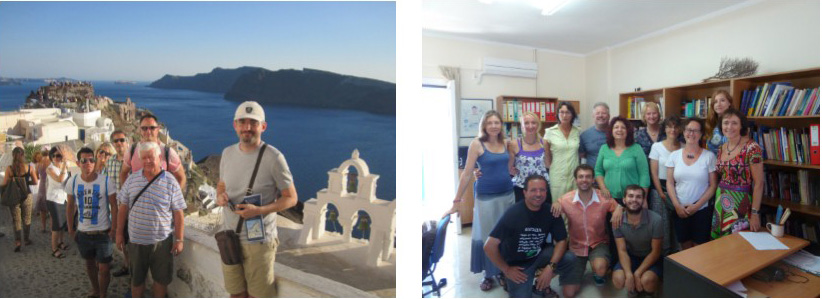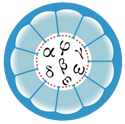Greek to non native speakers
Teacher Training: Greek to non native speakers
The 3-day and the 5-day seminars start the same day and finish in different days (Day 3 and Day 5)
2021:
5-day seminar:
26-30 March 2021, Athens
30 July- 3 August 2021, Megalochori, Santorini
3-day seminar:
26-28 March 2021, Athens
30 July-1 August 2021, Megalochori, Santorini
Working language: Greek
SEMINAR PROGRAMME
Day 1 (Friday)
- Presentation of the participants and their organizations
- Presentation of the seminar’s programme and the trainers (educational contract)
- The listening comprehension
Day 2 (Saturday)
- The writing skills
- The speaking skills
- The reading comprehension
Day 3 (Sunday)
- The teaching of terminology and the training of interpreters and translators in Greek
- Teaching Greek literature to advanced students
- The assessment and evaluation of the lesson, the students, the educational materials
Day 4 (Monday)
- Visit to a Greek Language lesson for adults: Observation of the courses’ place, discussion with administration, trainers and students, observation of the lesson
Day 5 (Tuesday)
- Visit to a Greek Language lesson for adults: Observation of the courses’ place, discussion with administration, trainers and students, observation of the lesson
- Reports on the visit: Presentation of participants’ remarks, thoughts and conclusions
- Evaluation of the seminar - Goodbye activities - Creating a communication network
Fees
Tuition fee: 70 €/ day/ person, which includes tuition and training materials.
Organizational costs: 100 €/ person, which includes administration costs, organizational costs and VAT.
Special discounts for non Erasmus Plus grant holders.
Learning Outcomes
At the end of the seminar, participants are expected to have acquired the skills that will enable them to:
- develop all language skills of their learners
- select the didactic techniques for organizing an efficient course
- teach advanced levels and professionals of languages
- cooperate with each other and exchange teaching experiences, ideas and materials
- assess and evaluate their courses and learners
- cope with different practical problems in their classrooms, through the exchange of experiences and ideas with their colleagues
Methodology
The course is based on the principles of participatory adult education, by embodying participants' experiences and fostering the exchange of their ideas, proposals and materials. Its focus is not merely on the didactic aspect of teaching adults but also on the participants' social and cultural knowledge gained through education, and teaching to different target groups throughout Europe. During the course, the following techniques will be implemented: working in subgroups and pairs, role play, lectures, guided conversation, brainstorming, language and educational games and experiential activities.
The course also includes observation sessions in a Greek Language lesson for adults. During this, participants will have the opportunity to assess the teaching session of Greek in the specific context by applying the techniques of observation, interviewing and group discussion. After its completion, participants will share their learning experience.
Participants will also be given hand-outs, original materials, lists of intercultural activities and websites for teaching tools and for promoting Greek language and culture. Taking into consideration that the variety of educational tools and equipment offers to participants the opportunity to enrich their educational experience, within the course there will also be implemented the means of video, audio, objects (realia), diagrams, photos and games-activities.
Preparation
Participants will be given information on the official examinations for the certificate of attainment in Greek and on the institutional framework of the non-formal education for non-Greek students. They will also receive articles on the subject of teaching Greek as a foreign language to adults as well as lists for the most recent publications of didactic materials. Before the course, they will be asked to describe the institution they work for and the basic characteristics of their learners and their own professional background. it is also required to bring and present samples of the didactic material they use. Participants will also receive some information about the course group (trainers, organizers and organizing institution, other participants). Organizers will be responsible for sending all the necessary information regarding the venue and the trip. All the above will be communicated via e-mail and Drop Box.
Follow-up
Upon completion of the course, participants will be encouraged to form a network which will function as a meeting point. Within this network, they will be able to exchange didactic materials and proposals as well as useful ideas for promoting language learning in different European countries.


